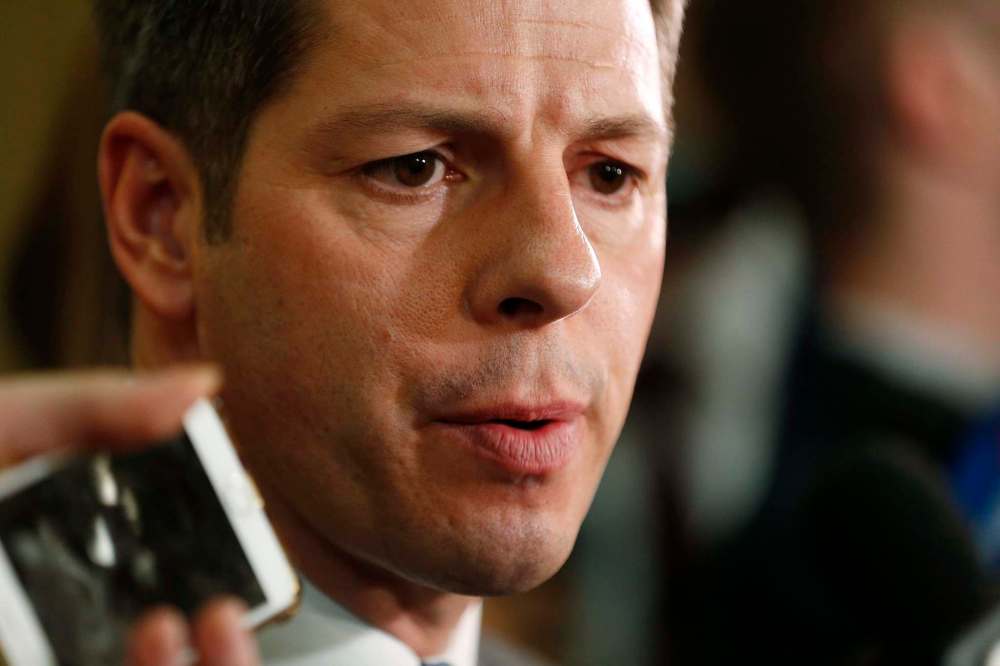Property tax, transit main expected budget focuses
Mayor manoeuvering early to ensure vote support in council
Advertisement
Read this article for free:
or
Already have an account? Log in here »
To continue reading, please subscribe:
Monthly Digital Subscription
$0 for the first 4 weeks*
- Enjoy unlimited reading on winnipegfreepress.com
- Read the E-Edition, our digital replica newspaper
- Access News Break, our award-winning app
- Play interactive puzzles
*No charge for 4 weeks then price increases to the regular rate of $19.00 plus GST every four weeks. Offer available to new and qualified returning subscribers only. Cancel any time.
Monthly Digital Subscription
$4.75/week*
- Enjoy unlimited reading on winnipegfreepress.com
- Read the E-Edition, our digital replica newspaper
- Access News Break, our award-winning app
- Play interactive puzzles
*Billed as $19 plus GST every four weeks. Cancel any time.
To continue reading, please subscribe:
Add Free Press access to your Brandon Sun subscription for only an additional
$1 for the first 4 weeks*
*Your next subscription payment will increase by $1.00 and you will be charged $16.99 plus GST for four weeks. After four weeks, your payment will increase to $23.99 plus GST every four weeks.
Read unlimited articles for free today:
or
Already have an account? Log in here »
Hey there, time traveller!
This article was published 21/11/2017 (2948 days ago), so information in it may no longer be current.
Homeowners can expect to see another 2.33 per cent property tax increase when Mayor Brian Bowman and councillors on the executive policy committee (EPC) table the 2018 city budget this afternoon.
The big questions, however, involve what services will be cut to limit the tax increase, and do the mayor and majority of Winnipeggers share the same priorities?
This is the budget Bowman will campaign on for re-election in October 2018. (Even though he hasn’t committed to running again, he has been talking and acting as if he plans to.) Bowman, and those who support the budget, are surely betting the spending priorities will satisfy enough voters when it comes time to cast a ballot next fall.

The mayor has not made any secret that he would not tolerate a property tax increase greater than 2.3 per cent — the same annual increase that’s been approved by council the past three years.
Repeating a trick from last year, Bowman also invited two non-executive policy committee councillors (Jenny Gerbasi and Matt Allard) to participate in the budget preparation, guaranteeing the mayor the minimum nine votes — a majority on the 16-member city council — needed to pass the budget.
Bowman likes to boast council has the final say on all matters, but having nine votes in your pocket going into a meeting guarantees the outcome. That will be important in the coming days.
The mayor threw out a red flag last week when he said there is a $10-million shortfall in Winnipeg Transit’s operating budget because of unilateral funding decisions made by the provincial government led by Premier Brian Pallister. Bowman described the Chicken Little sky-is-falling scenario if transit had to absorb the entire $10-million shortfall: the elimination of 120 drivers and 59 routes, and a fare increase in January of about 30 cents.
That’s not going to happen, as Bowman slyly explained the shortfall will be shared among other civic departments.
Coun. Marty Morantz, chairman of the public works committee and a member of the EPC, went further when he told reporters Tuesday a series of transit safety initiatives adopted by council earlier this year (and several others planned for next year) will not be eliminated from the 2018 budget.
Coun. Janice Lukes, who was on EPC for the first two years of the current council, has been on the outside of political power at city hall since Bowman removed her from his inner group in November 2016.
“What we see when the budget is tabled is very likely what council will ultimately approve,” Lukes said Tuesday. “There is just no way to make any changes given how the mayor has put this together.”
Lukes said she’d like to see increased funding for transit and parks, and $250,000 set aside for a governance review. For her own ward (South Winnipeg–St. Norbert), Lukes said she would like a budget commitment to construct the long-promised regional recreation campus.
The seven non-EPC (plus two) councillors — Lukes, Jeff Browaty, Shawn Dobson, Ross Eadie, Jason Schreyer, Devi Sharma, and Russ Wyatt — will get their first glimpse of the budget at a closed-door briefing this morning.
City hall conducted what it described as an exhaustive pre-budget consultation process with residents before Bowman and EPC+2 put the budget together, but it actually drew the participation of only about 900 people. In contrast, the online public consultations for the Winnipeg Canoe Club drew more than 1,000 respondents.
The public gets its chance to comment on the budget at a series of seven committee meetings running from Nov. 27 to Dec. 5. It’s a tight schedule that limits the chance for real public input, especially considering that at five of those meetings the committees must also conduct their own regular agenda.
While the EPC+2 have already had its input into the budget, the process leading up to the Dec. 12 special meeting of Winnipeg City Council leaves little opportunity for the other councillors and the public to make any changes it.
A similar public consultation process last year resulted in no significant changes to the budget tabled by EPC and what council ultimately approved.
aldo.santin@freepress.mb.ca


